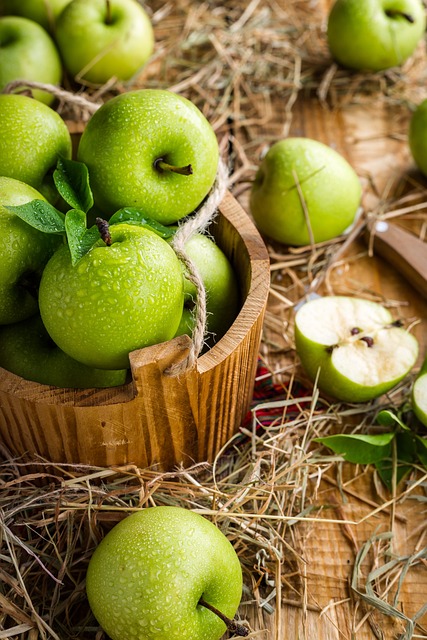A sustainable backyard combines environmental responsibility with lifestyle enhancement through eco-friendly practices like native plant and drought-tolerant landscaping, permaculture design, and water-efficient features. These methods conserve local ecosystems, reduce water consumption, attract wildlife, cut waste, and lower utility bills. By integrating green backyard ideas such as composting, homeowners contribute to biodiversity, healthier ecosystems, and sustainable living, enjoying a beautiful, low-maintenance outdoor space that benefits both community and planet.
Transform your backyard into a vibrant oasis with eco-friendly landscaping! Discover the countless benefits of a sustainable approach, from reducing environmental impact and conserving natural resources to promoting biodiversity. Explore innovative techniques like native plant selection, drought-tolerant designs, and green infrastructure integration. Learn about composting for nutrient-rich soil, water-efficient systems, and permaculture principles. Create a beautiful, functional space that saves money and fosters a deeper connection with nature. Embrace these green backyard ideas for a truly sustainable garden.
The Benefits of a Sustainable Backyard
A sustainable backyard offers a multitude of benefits, both for the environment and your lifestyle. By adopting eco-friendly landscaping practices, such as native plant landscaping and drought-tolerant design, you contribute to conserving local ecosystems and reducing water usage, especially in regions facing water scarcity issues. These green backyard ideas not only enhance the aesthetics of your outdoor space but also provide a haven for local wildlife, promoting biodiversity.
Incorporating permaculture design principles and practicing backyard composting can further transform your garden into a thriving, self-sustaining ecosystem. Such practices reduce waste, enrich soil fertility, and minimize the need for chemical fertilizers or pesticides. A water-efficient backyard is not only an environmentally responsible choice but also a practical one, as it can lower your utility bills. These sustainable garden design approaches contribute to a healthier planet and a more enjoyable, low-maintenance outdoor retreat.
– Reducing environmental impact
Incorporating renewable resources into your backyard landscaping offers a multitude of benefits, most notably a significant reduction in environmental impact. Opting for eco-friendly practices such as native plant landscaping and drought-tolerant designs not only conserves water but also minimizes the carbon footprint associated with transporting non-native species. Moreover, sustainable garden design principles like permaculture encourage biodiversity, fostering healthier ecosystems within your own backyard.
By implementing green backyard ideas that include composting and water-efficient practices, you contribute to a global movement towards more sustainable living. Backyard composting recycles organic waste, reducing the need for chemical fertilizers, while water-efficient landscaping methods ensure precious resources are preserved. These efforts collectively promote a harmonious balance between human habitation and nature, creating a vibrant and resilient green space that benefits both your community and the planet.
– Conserving natural resources
Creating a sustainable backyard is an excellent way to contribute to conservation efforts while enhancing your outdoor space. Eco-friendly landscaping practices allow you to embrace green backyard ideas that minimize environmental impact. By opting for drought-tolerant plants and implementing water-efficient features, such as drip irrigation, you can reduce water consumption. Native plant landscaping is a powerful tool in this regard, as it supports local ecosystems and promotes biodiversity.
Moreover, integrating permaculture design principles enables you to create a self-sustaining garden. Composting organic waste from your kitchen and backyard is another valuable contribution to sustainability. This practice enriches the soil, reduces landfill waste, and fosters a healthier, more vibrant garden. A sustainable garden design not only conserves natural resources but also provides an opportunity to connect with nature, offering both aesthetic pleasure and a sense of environmental stewardship.
– Promoting biodiversity
Incorporating renewable resources into your backyard landscape is a fantastic way to promote biodiversity and create an eco-friendly oasis. One effective approach is adopting native plant landscaping, which offers numerous benefits for local ecosystems. Native plants are adapted to the region’s climate and soil conditions, providing food and shelter for indigenous wildlife, including birds, butterflies, and beneficial insects. This creates a thriving microhabitat right in your backyard, contributing to the overall health of the local ecosystem.
Drought-tolerant landscaping is another key aspect of sustainable garden design. By selecting plants that require less water, you can reduce your irrigation needs and conserve this precious resource. Additionally, permaculture design principles encourage diverse planting methods, such as companion planting and multi-layered gardens, which maximize space efficiency and promote biodiversity. For instance, combining vegetables, herbs, and flowers in one bed attracts beneficial insects while deterring pests naturally, reducing the need for chemical interventions. Implementing backyard composting further enhances sustainability by recycling organic waste into nutrient-rich soil amendments, fostering a green backyard idea that supports healthy plant growth.
Transforming your backyard into a sustainable oasis not only enhances your outdoor space but also contributes to a greener planet. By adopting eco-friendly practices like native plant landscaping, drought-tolerant choices, and permaculture design, you can create a beautiful, vibrant, and water-efficient haven. Backyard composting adds another layer of sustainability by reducing waste and enriching the soil. These simple yet powerful changes contribute to a healthier environment, making your green backyard ideas a valuable step towards a more sustainable future.
